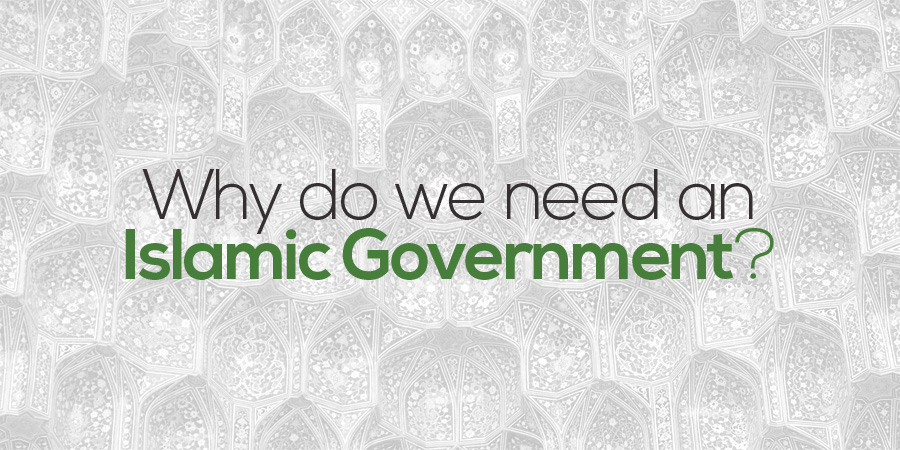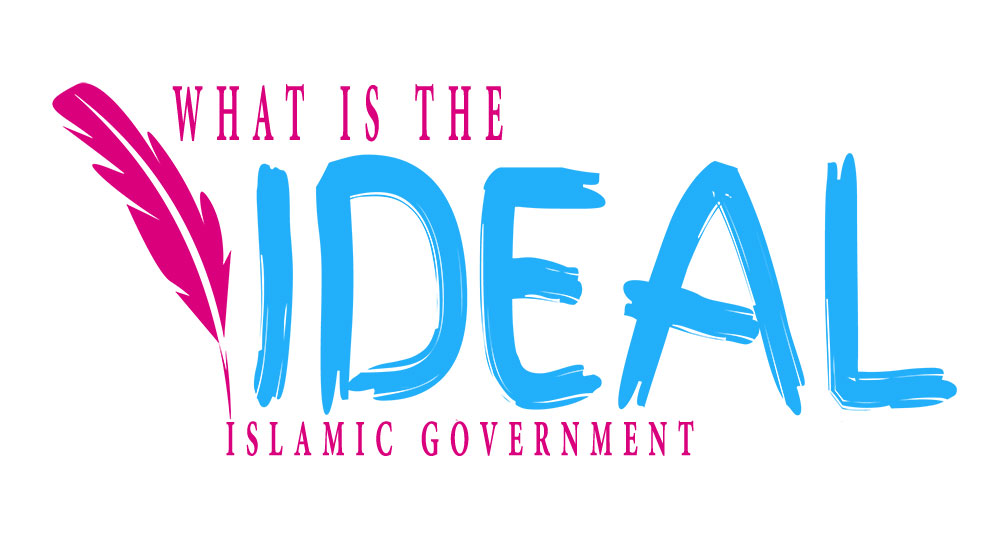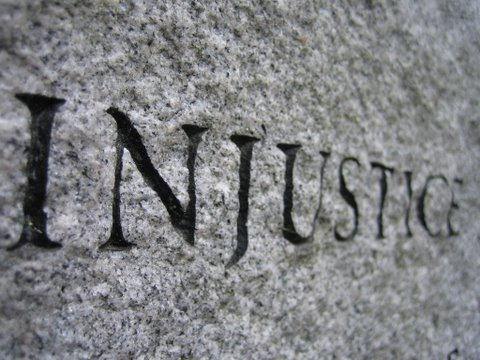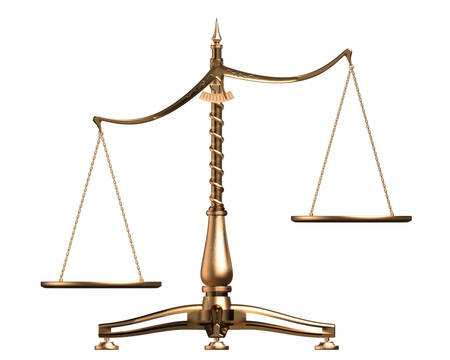 In order to answer this question the best way is to refer to the ideal Islamic government as expounded by the Leader of the Faithful Ali Ibn Abi Talib (a.s.).
In order to answer this question the best way is to refer to the ideal Islamic government as expounded by the Leader of the Faithful Ali Ibn Abi Talib (a.s.).
This text presents the ideal Islamic government in the eyes of Imam ‘Ali ibn Abi Talib (a.s.) through his letter to Malik Al Ashtar:
The different classes of people
Know that the people consist of classes who prosper only with the help of one another, and they are not independent of one another. Among them are the army of Allah, then the secretarial workers of the common people and the chiefs, then the dispensers of justice, then those engaged in law and order, then the payers of bead tax (jizyah) and land tax (kharaj) from the protected unbelievers and the common Muslims.
Then there are the traders and the men of industry and then the lowest class of the needy and the destitute. Allah has fixed the share of every one of them and laid down His precepts about the limits of each in His Book (Qur’an) and the sunnah of His Prophet by way of a settlement which is preserved with us.
Now the army is, by the will of Allah, the fortress of the subjects, the ornament of the ruler, the strength of the religion and the means of peace. The subjects cannot exist without them while the army can be maintained only by the funds fixed by Allah in the revenues, through which they acquire the strength to fight the enemies, on which they depend for their prosperity, and with which they meet their needs.
These two classes cannot exist without the third class namely the judges, the executives and the secretaries who pass judgments about contracts, collect revenues and are depended upon in special and general matters.
And these classes cannot exist except with the traders and men of industry, who provide necessities for them establish markets and make it possible for others not to do all this with their own hands. Then is the lowest class of the needy and the destitute support of and help for whom is an obligation, and every one of them has (a share in) livelihood in the name of Allah. Every one of them has a right on the ruler according to what is needed for his prosperity.
The ruler cannot acquit himself of the obligations laid on him by Allah in this matter except by striving and seeking help from Allah and by training himself to adhere to the right and by enduring on that account all that is light or hard.
- The Army
Put in command of your forces the man who in your view is the best well-wisher of Allah, His Prophet and your Imam. The chestiest of them in heart and the highest of them in endurance is he who is slow in getting enraged, accepts excuses, is kind to the weak and is strict with the strong; violence should not raise his temper and weakness should not keep him sitting.
Also associate with considerate people from high families, virtuous houses and decent traditions, then people of courage, valor, generosity and benevolence, because they are repositories of honor and springs of virtues. Strive for their matters as the parents strive for their child.
Do not regard anything that you do to strengthen them as big nor consider anything that you have agreed to do for them as little (so as to give it up), even though it may be small, because this will make them your well-wishers and create a good impression of you. Do not neglect to attend to their small matters, confining yourself to their important matters, because your small favors will also be of benefit to them while the important ones are such that they cannot ignore them.
That commander of the army should have such a position before you that he renders help to them equitably and spends from his money on them and on those of their families who remain behind so that all their worries converge on the one worry for fighting the enemy. Your kindnesses to them will tum their hearts to you.
The most pleasant thing for the rulers is the establishment of justice in their areas and the manifestation of the love of their subjects, but the subjects’ love manifests itself only when their hearts are dean. Their good wishes prove correct only when they surround their commanders (to protect them). Do not regard their positions to be a burden over them and do not keep watching for the end of their tenure.
Therefore, be broad-minded in regard to their desires, continue praising them and recounting the good deeds of those who have shown such deeds, because the mention of good actions shakes the brave and rouses the weak, if Allah so wills.
Appreciate the performance of every one of them, do not attribute the performance of one to the other, and do not minimize the reward below the level of the performance. The high position of a man should not lead you to regard his small deeds as big, nor should the low position of a man make you regard his big deeds as small.
Refer to Allah and His Prophet the affairs which worry you and matters which appear confusing to you, because, addressing the people whom Allah the Sublime, wishes to guide, He said:
O’ you who believe! Obey Allah and obey the Prophet and those vested with authority from among you; and then if you quarrel about anything refer it to Allah and the Prophet if you believe in Allah and in the Last Day (of Judgment) -(Qur’an, 4:59)
Referring to Allah means to act according to what is clear in His Book and referring to the Prophet means to follow his unanimously agreed sunnah in regard to which there are no differences.
- The Chief Judge
For the settlement of disputes among people select him who is the most distinguished of your subjects in your view. The cases (coming before him) should not vex him, disputation should not enrage him, he should not insist on any wrong point, and should not grudge accepting the truth· when he perceives it; he should not lean towards greed and should not content himself with a cursory understanding (of a matter) without going thoroughly into it.
He should be most ready to stop (to ponder) on doubtful points, most regardful of arguments, least disgusted at the quarrel of litigants, most patient at probing into matters and most fearless at the time of passing judgment. Praise should not make him vain and elation should not make him lean (to any side). Such people are very few.
Then, very often check his decisions and allow him so much money (as remuneration) that he has no excuse worth hearing (for not being honest) and there remains no occasion for him to go to others for his needs.
Give him that rank in your audience for which no one else among your chiefs aspires, so that he remains safe from the harm of those around you. You should have a piercing eye in this matter because this religion has formerly been a prisoner in the hands of vicious persons when action was taken according to passion, and worldly wealth was sought.
- Executive Officers
Thereafter, look into the affairs of your executives. Give them appointment after tests and do not appoint them according to partiality or favoritism, because these two things constitute sources of injustice and unfairness.
Select from among them those who are people of experience and modesty, hailing from virtuous houses, having been previously in Islam, because such persons possess high manners and untarnished honor. They are the least inclined towards greed and always base their eyes on the ends of matters.
Give them an abundant livelihood (by way of salary) because this gives them the strength to maintain themselves in order and not to have an eye upon the funds in their custody, and it would be an argument against them if they disobeyed your order or misappropriated your trust. You should also check their activities and have people who report on them who should be truthful and faithful, because your watching their actions secretly will urge them to preserve trust with and to be kind to the people.
Be careful of assistants. If any one of them extends his hands towards misappropriation and the reports of your reporters reaching you confirm it that should be regarded enough evidence. You should then inflict corporal punishment on him and recover what he has misappropriated you should put him in a place of disgrace, blacklist him with (the charge of) misappropriation and make him wear the necklace of shame for his offence.
- The Administration of Revenues
Look after the revenue (kharaj or land tax) affairs in such a way that those engaged in it remain prosperous because in their prosperity lies the prosperity of all others. The others cannot prosper without them, because all people are dependent on revenue and its payers.
You should also keep an eye on the cultivation of the land more than on the collection of revenue because revenue cannot be had without cultivation and whoever asks for revenue without cultivation, ruins the area and brings death to the people. His rule will not last only a moment.
If they complain of the heaviness (of the revenue) or of diseases, or dearth of water, or excess of water or of a change in the condition of the land either due to flood or to drought, you should remit the revenue to the extent that you hope will improve their position.
The remission granted by you for the removal of distress “from them should not be grudged by you, because it is an investment which they will return to you in the shape of the prosperity of your country and the progress of your domain in addition to earning their praise and happiness for meting out justice to them.
You can depend upon their strength because of the investment made by you in them through catering for their convenience, and can have confidence in them because of the justice extended to them by being kind to them.
After that, circumstances may so turn that you may have to ask for their assistance, when they will hear it happily, for prosperity is capable of bearing what· ever you load on it. The ruin of the land is caused by the poverty of the cultivators, while the cu1tivators become poor when the officers concentrate on the collection (of money), having little hope for continuance (in their posts) and deriving no benefit from objects of warning.
- The Clerical Establishment
Then you should take care of your secretarial workers. Put the best of them in charge of your affairs. Entrust those of your letters which contain your policies and secrets to him who possesses the best character, who is not elated by honors, lest he dares speak against you in common audiences.
He should also not be negligent in presenting the communications of your officers before you and issuing correct replies to them on your behalf and in matters of your receipts and payments. He should not make any damaging agreement on your behalf and should not fail in repudiating an agreement against you. He should not be ignorant of the extent of his own position in matters because he who is ignorant of his own position is (even) more ignorant of the position of others.
Your selection of these people should not be on the basis of your understanding (of them), confidence and your good impression, because people catch the ideas of the officers through affectation and personal service and there is nothing in it which is like well-wishing or trustfulness. You should rather test them by what they did under the virtuous people before you.
Take a decision in favor of one who has a good name among the common people and is the most renowned in trustworthiness, because this will be a proof of your regard for Allah and for him on whose behalf you have been appointed to this position (namely your Imam). Establish one Chief for every department of work.
He should not be incapable of big matters, and a rush of work should not perplex him. Whenever there is a defect in your secretaries which you overlook, then you will be held responsible for it.
- Traders and Industrialists
Now take some advice about traders and industrialists. Give them good counsel whether they be settled (shopkeepers) or traders or physical laborers because they are sources of profit and the means of the provision of useful articles.
They bring them from distant and far-flung areas throughout the land and sea, plains or mountains, from where people cannot come and to where they do not dare to go, for they are peaceful and there is no fear of revolt from them, and they are quite without fear of treason.
Look after their affairs before yourself or wherever they may be in your area. Know, along with this, that most of them are very narrow-minded, and awfully avaricious. They hoard goods for profiteering and fix high prices for goods. This is a source of harm to the people and a blot on the officers in charge.
Stop people from hoarding, because the Messenger of Allah (p.b.u.h.a.h.p.) has prohibited it. The sale should be smooth, with correct weights and prices, not harmful to either party, the seller or the purchaser; whoever commits hoarding after you prohibit it, give him exemplary but not excessive punishment
- The Lowest Class
(Fear) Allah and keep Allah in view in respect of the lowest class, consisting of those who have few means: the poor, the destitute, the penniless and the disabled; because in this class are both the discontented and those who beg. Take care for the sake of Allah of His obligations towards them for which He has made you responsible.
Fix for them a share from the public funds and a share from the crops of lands taken over as booty for Islam in every area, because in it the remote ones have the same shares as the near ones. All these people are those whose rights have been placed in your charge. Therefore, a luxurious life should not keep you away from them.
You cannot be excused for ignoring small matters because you were deciding big problems. Consequently, do not be unmindful of them, nor tum your face from them out of vanity.
Take care of the affairs of those of them who do not approach you because they are of unsightly appearance or those whom people regard as low. Appoint for them some trusted people who are God-fearing and humble. They should inform you of these people’s conditions.
Then deal with them with a sense of responsibility to Allah on the day you will meet Him, because of all the subjects these people are the most deserving of equitable treatment while for others also you should fulfill their rights so as to render account to Allah.
Take care of the orphans and the aged who have no means (for livelihood) nor are they ready for begging. This is heavy on the officers; in fact, every right is heavy. Allah lightens it for those who seek the next world and so they endure (hardships) upon themselves and trust on the truthfulness of Allah’s promise to them.
And fix a time for complainants wherein you make yourself free for them, and sit for them in common audience and feel humble therein for the sake of Allah who created you. (On that occasion) you should keep away your army and your assistants such as the guards and the police so that anyone who likes to speak may speak to you without fear, because I have beard the Messenger of Allah (p.b.u.h.a.h.p.) say in more than one place, ”The people among whom the right of the weak is not secured from the strong without fear will never achieve purity.”
Tolerate their awkwardness and inability to speak. Keep away from you narrowness and haughtiness; Allah would, on this account, spread over you the skirts of His mercy and assign the reward of His obedience for you. Whatever you give, give it joyfully, but when you refuse, do it handsomely and with excuses.
Then there are certain matters which you cannot avoid performing yourself. For example, replying to your officers when your secretaries are unable to do so, or disposing of the complaints of the people when your assistants shirk them. Finish every day the work meant for it, because every day has its own work. Keep for yourself the better and greater portion of these periods for the worship of Allah, although all these items are for Allah provided the intention is pure and the subjects prosper thereby.
Source: The letter of Imam ‘Ali ibn Abi Talib (a.s.) to Malik Al Ashtar, translated by Allamah Sayyid Sa’eed Akhtar Rizvi





